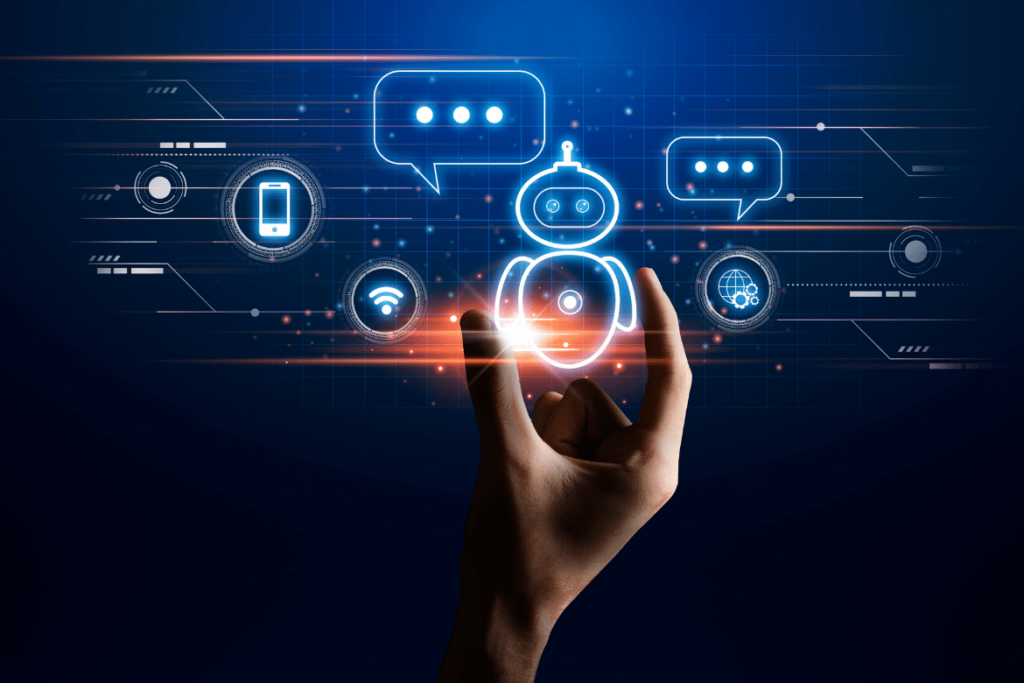Consumers crave personalized experiences these days. In fact, 80% of shoppers are more likely to buy from brands that offer tailored interactions. This is where artificial intelligence (AI) steps in, transforming marketing from a one-size-fits-all approach to a finely tuned instrument.
AI-powered personalization improves customer engagement, significantly enhances lead targeting, and boosts conversion rates. How? By understanding and anticipating each customer’s unique needs and preferences.
In this article, we’ll explore how AI is reshaping the marketing landscape. Let’s delve in and know more!
Understanding AI in Marketing
In simple terms, artificial intelligence (AI) is a branch of computer science focused on creating systems that can mimic human intelligence. In marketing, artificial intelligence isn’t about replacing humans but empowering them. Machine learning, a subset of AI, enables systems to learn from data and improve their performance over time.
This allows marketers to identify patterns in customer behavior, predict future actions, and personalize interactions at scale. Natural language processing (NLP) helps AI understand and respond to customer queries. This also analyzes sentiment in online reviews and even generates content.
Companies that offer comprehensive lead generation services often use AI to audit your current strategy. Such companies also predict revenue from lead generation and even guarantee results. Moreover, AI-powered recommendation engines are another valuable tool. These suggest relevant products or content to individual users based on their past interactions and preferences. This level of personalization not only enhances the customer experience but also drives conversions.
AI-Powered Lead Targeting
AI-powered lead targeting is a game-changer, revolutionizing how marketers identify and engage potential customers. Let’s explore how artificial intelligence transforms each stage of the lead targeting process.
Data Collection and Analysis
AI acts as a tireless data detective. It collects vast amounts of information about potential customers from various online and offline sources. This data includes everything from demographics and purchase history to social media activity and website interactions. AI-powered algorithms then analyze this data, uncovering hidden patterns and correlations.
Predictive Analytics
Predictive analytics is AI’s crystal ball, allowing marketers to peer into the future and anticipate customer behavior. By analyzing historical data and identifying trends, predictive analytics can accurately predict which leads are most likely to convert into paying customers. This leads to a powerful tool called lead scoring, where each lead is assigned a score based on its likelihood of conversion.
Personalized Content and Messaging
Gone are the days of generic marketing blasts. AI empowers marketers to deliver personalized content and messaging that resonates with each individual lead. This involves creating dynamic content that adapts in real time based on the user’s behavior and preferences.
For example, a website might display different product recommendations to different visitors based on their past purchases or browsing history. Email campaigns can be personalized with subject lines and content that appeal to specific segments of the audience.
Conversion Optimization Using AI
AI doesn’t stop at lead targeting; it goes further to optimize conversions, ensuring that potential customers turn into loyal buyers. Here’s how artificial intelligence transforms the conversion optimization process:
- Customer Journey Mapping: AI breaks down the customer journey step by step, from first contact to final purchase. By looking at how users act at each point, it finds areas where they get stuck or leave. This helps to smooth out the path and make it easier for them to buy.
- Retargeting and Remarketing: It keeps track of who’s interested in your stuff but hasn’t bought yet. It then shows them personalized ads and emails, reminding them to come back and buy.
- A/B Testing and Optimization: Artificial Intelligence makes testing different versions of webpages and ads easier. It automatically finds out which works best and uses that one to get more people to buy.
- Chatbots and Virtual Assistants: AI-powered helpers give instant support and answer questions. They take care of simple tasks so human staff can focus on bigger problems.
Challenges and Ethical Considerations
While AI offers immense potential, it’s not without challenges. Data privacy concerns are paramount, as it relies on collecting and analyzing vast amounts of personal information. Ensuring transparency in algorithms is crucial to avoid biases that could lead to discrimination.
Striking the right balance between personalization and privacy is an ongoing challenge. Over-reliance on artificial intelligence can also lead to a loss of human touch in marketing interactions. Ethical considerations are essential as businesses navigate the ever-evolving landscape of AI in marketing.
Concluding Thoughts
The fusion of artificial intelligence and marketing is undeniable. It is reshaping the marketing landscape by personalizing experiences, targeting leads with precision, and optimizing conversions. While challenges exist, the potential for growth and enhanced customer engagement is immense. Embracing AI isn’t just an option; it’s a necessity for businesses looking to thrive in the digital age.

